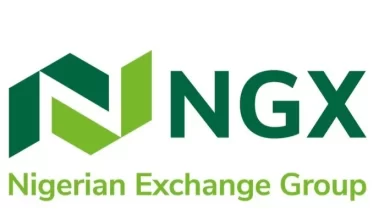Nigeria’s Economy Records Third Consecutive Positive Growth 3.98% In Q4 2021

Trendynews understands that the economy of Nigeria recorded a high GDP rate of 3.98 percent in the fourth quarter of 2021.
This growth, however, marked a second consecutive decrease since it recorded a post-covid all-time high of 5.01 per cent in Q2 2021. Consequently, the Q4’ 2021 GDP rate is 3.4 percent higher when compared to the same quarter in 2020.
With the full-year Nigeria GDP return to a positive growth rate of 3.40 percent for the first time since the beginning of COVID-19, Nigeria continues to maintain a strong economic recovery momentum. This momentum may be attributed to the full resumption of productive activities in the country and the expansion of the non-oil sector. Also, in nominal terms, the size of the economy increased by 13.9% to stand at N173.5 trillion when compared to 2020 with just N152.3 trillion.
Figure 1: Nigeria GDP Growth Rate From 2016-2021 (%)
The non-oil sector remained the core driver of the Nigerian Economy in Q4 2021.
While the oil sector remained in recession, in 2021, the non-oil sector sustained its growth trajectory and grew by 4.44 percent while accounting for 92.76 percent of the GDP compared to its figure of 91.84 percent and a contraction of 1.25 percent in the corresponding year 2020.
This growth may be attributed to the growth of 3 key sectors, noticeably the transportation and storage sector which contracted by 22.26% in 2020 but grew significantly to 16.25% in 2021. Also, the Financial Sector and the Information and Communication sector sustained their growth at 10.07% and 6.55% respectively. Overall, the non-oil sector growth in 2021 is impressive and signifies an improvement.
However, the oil sector continued to struggle despite an increase in global oil prices for the most part of the year. The sector posted a negative growth rate of 8.30% in 2021. This may be due to the decline of domestic crude oil production from 1.6 million barrels per day (mbpd) in 2020 to 1.4 million barrels per day (mbpd) in 2021.
Nigeria GDP – Nigeria’s economy recorded a third consecutive positive growth of 3.98 per cent in Q4’2021 since its last contraction in Q4’2020.
Trendynews understands that the economy of Nigeria recorded a high GDP rate of 3.98 per cent in the fourth quarter of 2021.
This growth, however, marked a second consecutive decrease since it recorded a post-covid all-time high of 5.01 per cent in Q2 2021. Consequently, the Q4’ 2021 GDP rate is 3.4 per cent higher when compared to the same quarter in 2020.
With the full-year Nigeria GDP return to a positive growth rate of 3.40 per cent for the first time since the beginning of COVID-19, Nigeria continues to maintain a strong economic recovery momentum. This momentum may be attributed to the full resumption of productive activities in the country and the expansion of the non-oil sector. Also, in nominal terms, the size of the economy increased by 13.9% to stand at N173.5 trillion when compared to 2020 with just N152.3 trillion.
Figure 1: Nigeria GDP Growth Rate From 2016-2021 (%)
The non-oil sector remained the core driver of the Nigerian Economy in Q4 2021.
While the oil sector remained in recession, in 2021, the non-oil sector sustained its growth trajectory and grew by 4.44 per cent while accounting for 92.76 per cent of the GDP compared to its figure of 91.84 per cent and a contraction of 1.25 per cent in the corresponding year 2020.
This growth may be attributed to the growth of 3 key sectors, noticeably the transportation and storage sector which contracted by 22.26% in 2020 but grew significantly to 16.25% in 2021. Also, the Financial Sector and the Information and Communication sector sustained their growth at 10.07% and 6.55% respectively. Overall, the non-oil sector growth in 2021 is impressive and signifies an improvement.
Nigeria GDP – Nigeria’s Economy Records Third Consecutive Positive Growth 3.98% In Q4’2021
However, the oil sector continued to struggle despite an increase in global oil prices for the most part of the year. The sector posted a negative growth rate of 8.30% in 2021. This may be due to the decline of domestic crude oil production from 1.6 million barrels per day (mbpd) in 2020 to 1.4 million barrels per day (mbpd) in 2021.
Figure 2: The Oil and Non-oil Growth in 2021
10 Leading Sectors and Declining Sectors in 2021
The breakdown of sectoral growth in 2021 showed that rail transport and pipeline outperformed other sub-sectors with a growth of 36.9 percent. Also, metal ores grew by 34.2%, while electricity, gas, steam, & air conditioning supply recorded a growth of 27.6%. However, 10 sectors declined in productivity in 2021 with oil refining contrasting by 47.94 percent.
Nigeria’s economy is now driven by the non-oil sector
- The impressive growth of the non-oil sector indicated a paradigm shift away from oil-related activities in the economy. With the continuous contraction of the oil sector’s share in the GDP, Nigeria’s status as an oil economy is fast fading away. While renewed growth in the oil sector is important, continued diversification and expansion of the non-oil sector are crucial to accelerating growth and driving social inclusion.
The economic growth increase while the per capita income plummeted
The per capita income for 2021 stood at US$2010, a 4 percent decline compared when compared to 2020, which took Nigeria a decade backward in time. The situation is a fallout from the worsening macroeconomic indicators rubbing off on the growth recorded in Nigeria.
This is, remarkably, due to continual depreciation/devaluation of the Naira and persistently high inflation rate. As the exchange rate volatility deepens, it impacts the inflation rate, and the interest rate depresses households’ purchasing power. While economic growth is a necessity, the stability of the macroeconomic space is vital for the sustainable transmission of economic growth outcomes into improved living standards of the citizens.




